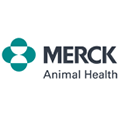 Merck Animal Health (known as MSD Animal Health outside the United States and Canada) hosted leading animal welfare experts together with subject matter experts from agriculture, food processing/packing and retail – restaurants and grocers in a first of its kind symposium “Advancing Animal Welfare Together” in September in Dallas, Texas. The gathering, designed as an open dialogue for the 35 participants, explored ways to work together to address practices essential to animal welfare today, and advancements possible in the future.
Merck Animal Health (known as MSD Animal Health outside the United States and Canada) hosted leading animal welfare experts together with subject matter experts from agriculture, food processing/packing and retail – restaurants and grocers in a first of its kind symposium “Advancing Animal Welfare Together” in September in Dallas, Texas. The gathering, designed as an open dialogue for the 35 participants, explored ways to work together to address practices essential to animal welfare today, and advancements possible in the future.
The symposium is part of the Merck Animal Health commitment to helping deliver a safe, affordable and sustainable food supply to meet the world’s growing demand for animal protein, and was organized by the company’s recently created Veterinary & Consumer Affairs team.

“We believe that the topics we explored are important to everyone involved at every step in the food chain,” said Scott Bormann, vice president, North America commercial operations for Merck Animal Health. “Consumers expect food choices that are safe, healthy and that they can feel good about. Our entire industry needs to cooperate, communicate and collaborate to make sure we meet evolving consumer demands while ensuring on-farm practices align with what is best for the animal.”
Timely topics and critical issues
Temple Grandin, Ph.D., a pioneer in animal welfare and handling, opened the symposium by emphasizing the importance of exploring future animal welfare advancements through the lens of lessons the industry has learned from the past. Renowned animal welfare experts addressed topics ranging from animal behavior to welfare compliance and pain management, while food industry leaders reviewed consumer expectations in the grocery aisle and at the dinner table. Animal welfare experts looked at possible advancements in essential areas including:
- Animal Welfare Compliance: Lily Edwards-Callaway, Ph.D., Colorado State University
- Animal Pain Management: Hans Coetzee, BVSc., Ph.D., Kansas State University
- Swine Welfare and Behavior: Janeen Salak-Johnson, Ph.D., University of Illinois
- Poultry Welfare: Janice Swanson, Ph.D., Michigan State University
Meeting Consumer Expectations
An overriding theme heard throughout the symposium was the need for transparency and sharing information, so consumers understand how their food is grown and raised – and gets from the farm to their tables. Candace Croney, Ph.D., director of the Center for Animal Welfare Science at Purdue University, emphasized the importance of “fostering dialogue that connects consumers to their food and those who produce it.” Dr. Grandin, Colorado State University, agreed.
“We have to show what we do – open the door and share what we do. The worst problem is that people don’t know about the good stuff that is happening,” said Dr. Grandin.
An emerging new consumerism will change the marketplace and the way food gets to consumers according to David Fikes, vice president of the Food Marketing Institute, further underscoring the need for open lines of communication with consumers.
“We are transitioning from the industrial age to the information age, which means embracing all means of communication to get the word out [to consumers],” said Fikes, adding “these conversations need to take place up and down the food chain for all of us to succeed.”
Dr. Croney closed the symposium, sharing the need to “balance science-based decision making on animal care and welfare with changing consumer expectations and values.”
“We are giving consumers what they want: safe, affordable and nutritious food. Now, we need to work together to better incorporate animal welfare into a sustainable, socially responsible food supply.”
Merck Animal Health’s Commitment to Animal Welfare
Merck Animal Health created the Veterinary and Consumer Affairs team to serve our companion animal and food production animal industry partners - listening to their needs and sharing information, research and insights to enable more informed decisions in a changing marketplace. The team is led by Judson Vasconcelos, DVM, Ph.D.
“We know that we, too, play an important role in the food chain, and our commitment is based on three pillars: leading with prevention, innovating with science and advancing animal welfare,” Vasconcelos said. “We are grateful to our partners for their commitment and look forward to working together to advance animal welfare over the coming year.”

December 4 , 2017 - Merck Animal Health.


